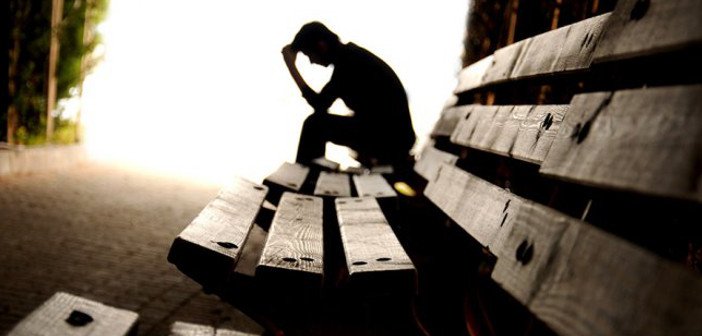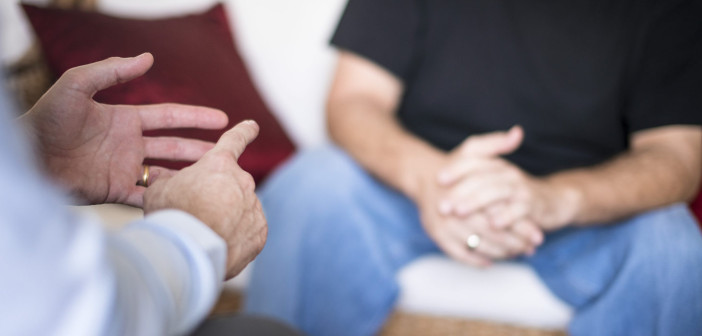At War With Yourself | The Invisible Enemy & Me
Imagine you were fighting an invisible war where the enemy could anticipate your every move and tactic. Worse still: imagine the enemy lived inside your head and was unrelenting in its fight against you.
I was around eleven when I first thought I might have OCD. By this time I was washing my hands so excessively that the skin around my knuckles regularly cracked, and I’d leave little traces of blood on the floor, couch or whatever book or magazine I happened to be reading at the time. Skin cream was bought, gloves were worn, but it didn’t matter; I’d either wash it away or simply grow irritated and take them off. Family members told me it was nothing to worry about: “I saw someone on the Late Late Show,” one said, “who claimed that teenagers and children worry about having OCD when they really don’t. I wouldn’t worry, it’s normal.”
I figured they were right and I’d grow out of it eventually.
Years later a counsellor would tell me that it was simply a way I’d learned to deal with stress: “Whenever you felt you weren’t in control of your environment you’d wash your hands. It was a way for you to gain control.”
It made some sense, but it didn’t account for the regular irritating thought patterns that had emerged when I hit puberty. Whenever I couldn’t play guitar like a musician I admired, write like a poet I loved, or learn to socialise like a boy of my age should, I’d analyse and overanalyse what I thought I was doing wrong and think about it repeatedly before trying again. If I didn’t make the self-established mark a second or third or fourth time, it would be back to square one in a cyclical pattern of blame and criticism that, over time, tore down my self-esteem.

These weren’t thoughts that could be dismissed: I couldn’t control them. They were negative, intrusive thoughts that bled into every aspect over my life, essentially paralysing me into a state of fear that inhibited my ability to function. They’d descend onto my mind like military paratroopers intent on ransacking and usurping all the rational, logical thoughts I’d stored over time, replacing them with anxiety and worry over the smallest details of my existence. Everything was up for scrutiny: the way I’d walk, talk, learn, write, and interact with others. I’d go into a state of dissociation and disconnect from my friends, making me feel isolated and alone.[pullquote] If I didn’t make the self-established mark a second or third or fourth time, it would be back to square one in a cyclical pattern of blame and criticism that, over time, tore down my self-esteem.[/pullquote]
Eventually these intrusive thoughts would lead to ritual behaviours: I’d think about something negative, and whether it be it truthful or imagined, if I didn’t enact the behaviours I’d fear they would make themselves manifest. If I didn’t tap my head three times with my knuckles, I’d fail my exams, my friends would fall out with me, my family would leave. I’d lose control of my life and all my fears would be free to wreak havoc on my existence. Illogical, I know, but inescapable all the same.
No one else I knew had a mind that worked like this, and so I felt like a fool. I’d lose sleep thinking and worrying about all the things in my life I was doing wrong and without any kind of guidance I felt scared. I’d fall into regular depression and spend periods of time feeling lost, sometimes contemplating self-harm.
Of course, despite my concerns, I wasn’t alone. Obsessive Compulsive Disorder affects one in every 33-50 people – essentially 2% of the Irish population. It is a tangible, real illness that studies suggest is caused by chemical or structural abnormalities in the brain, possibly as a result of environmental factors such as stress. It manifests as obsessive thinking and compulsive behaviours, and is often misrepresented by wider popular culture as a heightened ‘ultra-cleanliness’: an obsession with hygiene that has spun out of control. Although many who live with OCD do obsess over hygiene and sanitation, it is much more debilitating than is presented in the media: much less a quirk than a wearying, unavoidable illness.

In fact, as a direct result of inaccurate depictions, people have taken to using the term ‘OCD’ in such offhand and flippant ways to describe such quirks in their lives: when was the last time you heard a neat freak friend of yours describe themselves as “so OCD?” Or when you heard someone you know use the term to describe the way they organise their notes or work environment? Could you imagine if these people used other illnesses so flippantly in their day-to-day lives? What if they used cancer so flippantly, or heart failure? Naturally, your response would be one of condemnation, so why allow them to use OCD? There is a persistent stigma of not only OCD in our culture, but mental illness more broadly. If an illness doesn’t make itself physically manifest, we dismiss it off-hand without realising the impact that might have.[pullquote]Although many who live with OCD do obsess over hygiene and sanitation, it is much more debilitating than is presented in the media: much less a quirk than a wearying, unavoidable illness.[/pullquote]
This is what prevented me from seeking help for so long. If my anxieties had been validated and discussed from the start, I might have been presented with the tools towards dealing with my illness, but because it was presented as a quirk or a joke or something so rare and exclusively hygiene-centred, I figured I was simply damaged.
I was diagnosed with OCD in January of last year. Sitting in a psychiatrist’s office in UCD holding back tears, I listened intently as everything I’d suspected from a young age was confirmed. It was as if the woman speaking to me in that office retroactively validated the concerns I had when I was 11. She didn’t take the same route others had taken. She didn’t tell me it was all made up or in my head, or that I was simply being a worrywart. She looked at me and said, “you were right, this is OCD.” I was suddenly overwhelmed: I was not strange or a fool for feeling this way, and I was perfectly right in feeling concerned in the first place.

My medication was altered to better deal with my symptoms and once I discovered exactly what it was I was dealing with, I was able to take concrete steps towards living with my illness. I see a counsellor regularly and have alerted lecturers where necessary. Now that I have tangible proof of what it is I am dealing with, slowly but surely everything is falling into place.
However, as with all mental illness, there is no quick fix, and the symptoms detailed above will appear and reappear at the most inopportune of times: at family gatherings, when writing, or, worst of all, when I’m tucked up in bed trying to sleep. As ever, the worst thing about having OCD is not knowing what will trigger it in your day to day life. Any offhand comment could plague you for weeks. There’s no consistent pattern. Put simply: it’s like walking through the tall grass in Pokémon. And you’ve just got to live with it.
The difference in dealing with OCD post-diagnosis though, is that I have the tools necessary to wade through the battlefields of anxiety without getting completely lost.
It is worth bearing in mind that a multitude of supports are available for those suffering with OCD. OCD Ireland links to numerous networks on their website, and there is no shame in contacting a local doctor, psychiatrist or counsellor if you have any concerns. Although you may be fighting a war on yourself, you don’t have to fight it alone.
